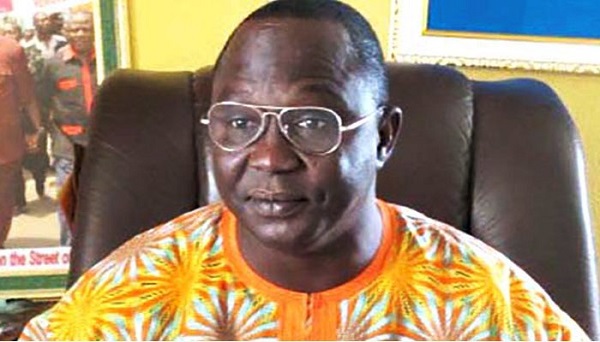Politics
Labour opposes Nigerian govt’s plan to hands off health sector amid medical brain drain

The Nigeria Labour Congress (NLC) has expressed its opposition to plans by the Federal Government to privitise the health sector, despite the massive haemorrhaging of experienced medical personnel to Western countries.
Ayuba Wabba, the NLC President, made this position known in a position paper submitted to the federal government taskforce on healthcare reform headed by the Vice President, Prof. Yemi Osinbajo.
According to the congress, it “would be tantamount to mass suicide to attempt to privatise public healthcare in Nigeria.”
To increase budget creation, allocation, and spending, the NLC did, however, advocate a national development reform of the public financial management system.
In accordance with the Abuja Declaration on Health, it also demanded that the government raise financing to the health sector by at least 15% starting with a two percent annual increase.
The NLC further defended its stance by citing Article 25 of the 1948 Universal Declaration of Human Rights, which referred to healthcare as a fundamental human right that is necessary for the enjoyment of all other rights.
According to the NLC, the International Covenant on Social, Economic, and Cultural Rights (CSECR), a multilateral agreement ratified by the United Nations General Assembly on December 16, 1966, significantly strengthens the right to high-quality, affordable healthcare.
It also mentioned that Article 12 of the CSECR recognised everyone’s right to the best possible level of bodily and mental health.
The congress also said labour would like to work with the government in the design and implementation of a public-private participation in the health services delivery in such a way that the workers and their families are able to access and afford available health care service from primary to tertiary health care with human dignity.
Read also: Nigerian govt disregards medical brain drain, says country has ‘enough doctors’
“We will therefore need to examine the existing National Health Act and other policies and programs to enable us to steer towards solutions that are workable with implementation strategies.
“It would be tantamount to mass suicide to attempt to privatise public healthcare in Nigeria, especially in light of our foregoing submissions. We, therefore, demand a halt to the idea of a health sector reform that allows for free entry and exit into the health sector yet compromising the government’s responsibility to provide health services to its citizens and especially the 87 million Nigerians who are living under $2 per day,” the NLC said.
In addition, the NLC stated that any meaningful reform should prioritise making healthcare affordable, accessible, and available across class, gender, and location.
“We believe that Nigeria is endowed with sufficient resources to adequately fund the health sector, which must be affordable, accessible, and available from the rhetoric of the policy texts.
“While we are not averse to the participation of the private sector in the provision of health services, we are mindful of the fact the private sector is most likely to be motivated by profit and will therefore price health services out of the reach of the common citizens.
“We demand that government’s presence in the health sector should be a social responsibility towards its citizens to aim at reducing poverty and inequality.
“Thus, we recommend a national development reform of the public financial management system aimed at strengthening budget design, allocation, and spending,” it explained.
In April 2022, the Nigerian Medical Association revealed that Nigeria lost over 9,000 medical doctors to the United Kingdom, Canada and the United States of America between 2016 and 2018.
The President of the association, Professor Innocent Ujah, stated this during the Maiden NMA Annual Lecture Series in Abuja.
He said the loss left Nigeria with only 4.7 per cent of its specialists to service the healthcare needs of the population, saying this does not paint the country in good light.
Join the conversation
Support Ripples Nigeria, hold up solutions journalism
Balanced, fearless journalism driven by data comes at huge financial costs.
As a media platform, we hold leadership accountable and will not trade the right to press freedom and free speech for a piece of cake.
If you like what we do, and are ready to uphold solutions journalism, kindly donate to the Ripples Nigeria cause.
Your support would help to ensure that citizens and institutions continue to have free access to credible and reliable information for societal development.






















